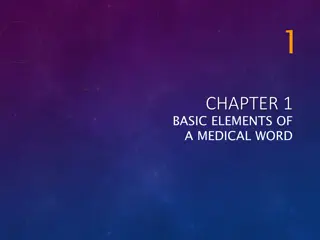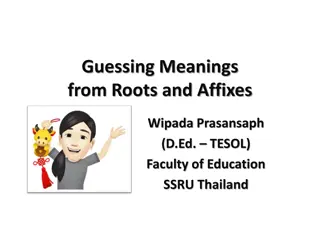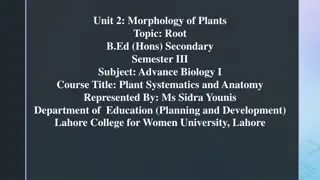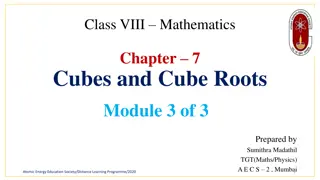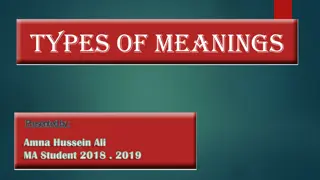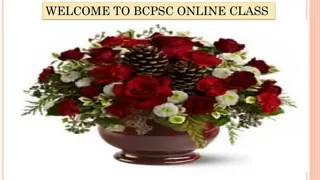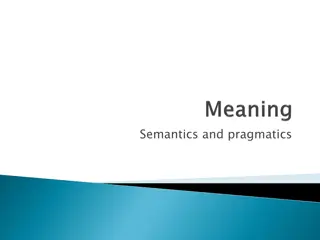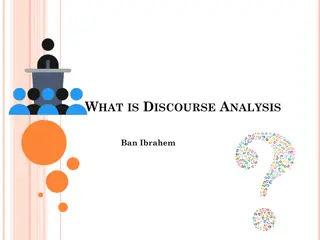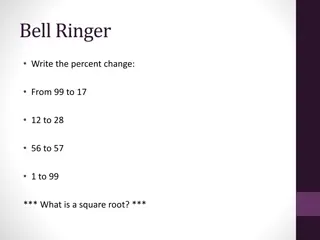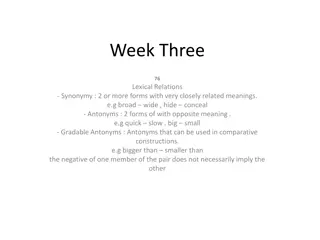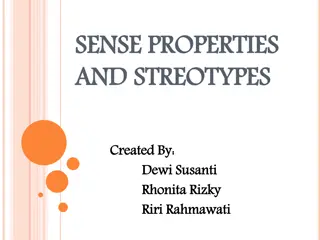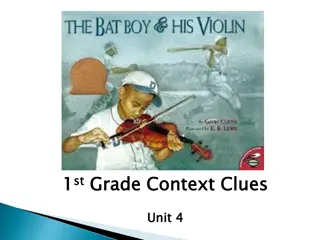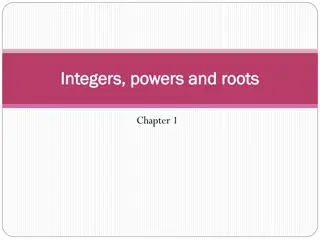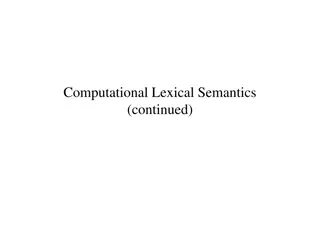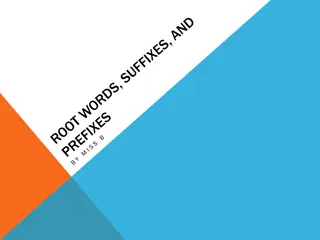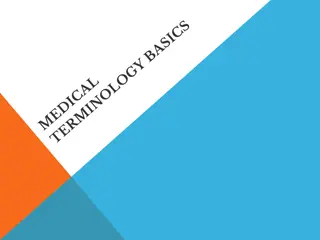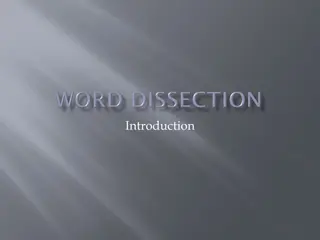Understanding Word Roots: Origins and Meanings in English Language
Explore the fascinating world of word roots in the English language with this comprehensive review. Discover the significance of word parts, generalizations, and application in various contexts, from drama and opera to privilege and prejudice. Uncover the relationships between root words and their derived forms, shedding light on the evolution of language through Greek and Latin influences.
Download Presentation

Please find below an Image/Link to download the presentation.
The content on the website is provided AS IS for your information and personal use only. It may not be sold, licensed, or shared on other websites without obtaining consent from the author. Download presentation by click this link. If you encounter any issues during the download, it is possible that the publisher has removed the file from their server.
E N D
Presentation Transcript
application dramatic enraged formal momentous opera prejudice privileged recital
An official request for something, such as a job, an education, or a loan.
A play in which music is an essential and constant part.
A musical entertainment, usually given by a single performer.
A root word is a word part that usually cannot stand alone and may be the base for a family of words. Many words in English come from Greek and Latin.
Origin Meaning Example Root aud Latin hear audience duc gram jud poli vis bene Latin Greek Latin Greek Latin Latin lead Letter, written grammar judge city see well, good conductor prejudice metropolitan invisible benefit
Sometimes authors write broad statements that apply to many examples. These statements are called generalizations. Often, clue words such as most, all, sometimes, always, and never identify generalizations.
Generalizations supported by facts and logic are called valid generalizations. Faulty generalizations are not supported by facts and logic. Generalizations should always be supported with facts from the text or from your knowledge of the world.
Look back at pages 376-378. Summarize the concert Marian gave at the Lincoln Memorial on Easter Sunday in 1939. Explain how this event came about and why it was historically important. Use evidence from the text in your summary.
An inset photo of Marian Anderson in front of a microphone at the Lincoln Memorial, overlaying a view of the huge crowds gathered on the mall in Washington, DC, to see her performance. click on picture




